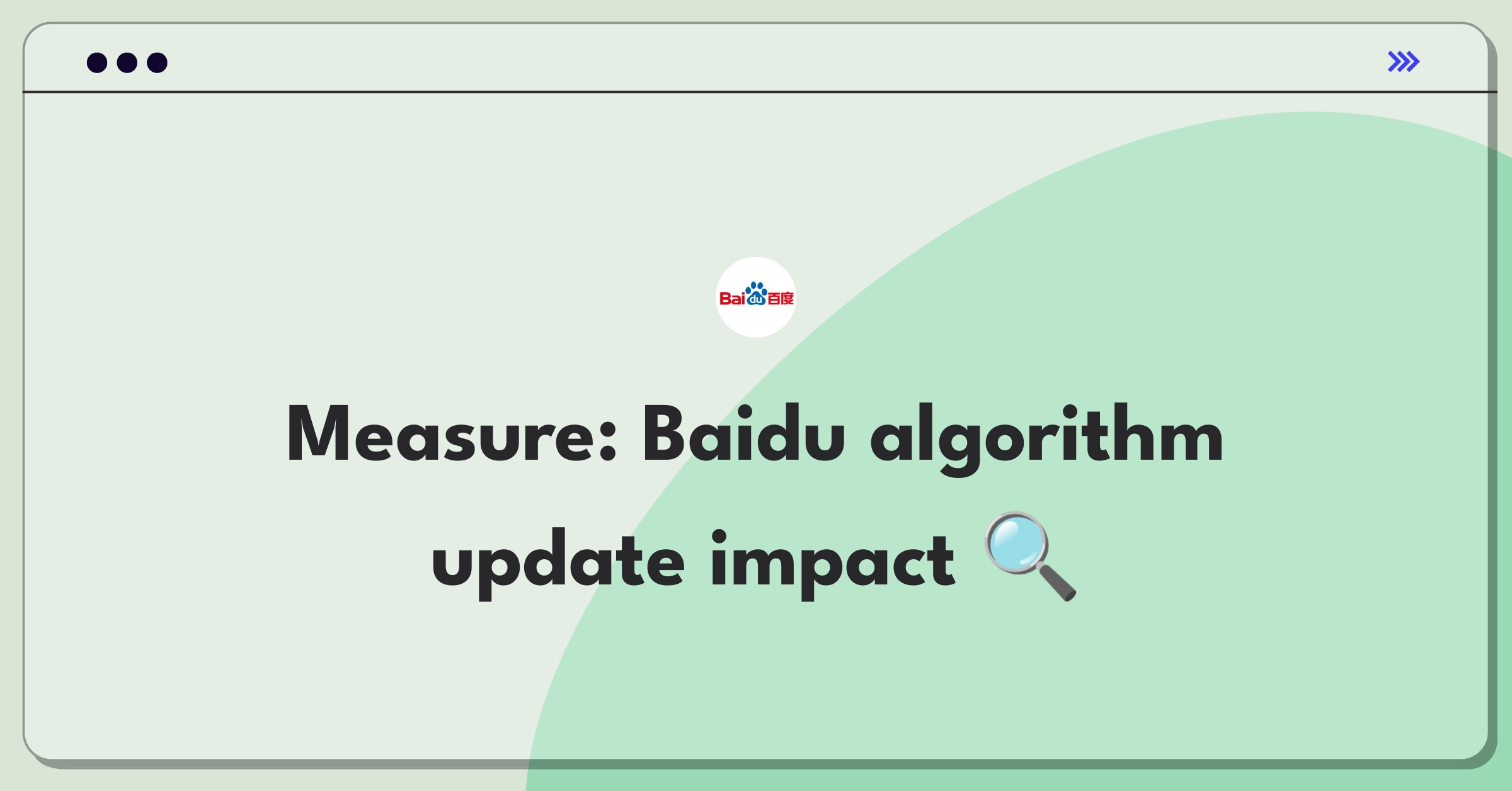Introduction
Measuring the success of Baidu's search engine algorithm updates is a critical task that requires a comprehensive approach. To effectively evaluate these updates, I'll follow a structured framework that covers core metrics, supporting indicators, and risk factors while considering all key stakeholders. This approach will allow us to gain a holistic view of the algorithm's performance and its impact on Baidu's overall search ecosystem.
Framework Overview
I'll follow a simple success metrics framework covering product context, success metrics hierarchy.
Step 1
Product Context (5 minutes)
Baidu's search engine algorithm is the core technology powering China's leading search platform. It's responsible for understanding user queries, indexing web content, and delivering relevant results to millions of users daily. Key stakeholders include:
- Users: Seeking accurate, relevant, and fast search results
- Advertisers: Looking for effective ad placements and ROI
- Content creators: Aiming for visibility and traffic
- Baidu shareholders: Expecting business growth and market dominance
The user flow typically involves:
- Query input: Users type or speak their search query
- Results display: The algorithm processes the query and presents a ranked list of results
- User interaction: Users browse, click, or refine their search as needed
Baidu's search algorithm is crucial to maintaining its market leadership in China and expanding its ecosystem of services. Compared to competitors like Google and Sogou, Baidu has the advantage of deep localization and understanding of Chinese language nuances.
In terms of product lifecycle, the search algorithm is in a mature stage but requires continuous innovation to stay competitive and adapt to evolving user needs and technological advancements.
Subscribe to access the full answer
Monthly Plan
The perfect plan for PMs who are in the final leg of their interview preparation
$99 /month
- Access to 8,000+ PM Questions
- 10 AI resume reviews credits
- Access to company guides
- Basic email support
- Access to community Q&A
Yearly Plan
The ultimate plan for aspiring PMs, SPMs and those preparing for big-tech
$99 $33 /month
- Everything in monthly plan
- Priority queue for AI resume review
- Monthly/Weekly newsletters
- Access to premium features
- Priority response to requested question


.png)